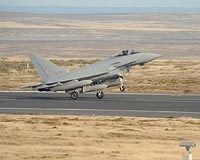 |
Tehran (UPI) Feb 19, 2009 Iran's recent deal with neighboring Azerbaijan to build a pipeline to import 6.5 billion cubic meters of natural gas a year underlines its energy weakness as the United States strives to secure global backing for harsh new sanctions on the Islamic Republic. "Iran may get some geopolitical mileage out of an enhanced energy relationship," the U.S. global security consultancy Stratfor said of the Feb. 12 agreement with Azerbaijan's state-owned energy company, SOCAR. "But more significant is the trend that despite having the world's second largest natural gas reserves, Tehran is increasingly having to rely on imports." Azerbaijan, sitting on vast energy resources in the Caspian Sea basin, already exports some 1.3 billion cubic meters of gas to its southern neighbor. The new 124-mile pipeline, which is being built by SOCAR, will vastly increase Iran's gas imports when it becomes operational in two years. "Iran's increasing reliance on natural gas imports limits the extent to which it can afford to defy international pressure seeking to rein in its radical behavior," Stratfor observed. The administration of U.S. President Barack Obama said this month that it would press the U.N. Security Council to agree on tougher sanctions against Iran "within weeks" to force it to abandon its alleged nuclear arms program. However, these will only be truly effective if they are endorsed by Russia and China, which do extensive business with Iran. The Islamic Republic has been under various international sanctions for years but these have been less than airtight and Tehran has continued to defy the West. The Americans believe that Russia, Iran's main foreign arms supplier, will go along with the harsher sanctions regime they have in mind. But China, which relies heavily on Iran oil supplies, remains an uncertain partner. The U.S. administration is leaning on oil-rich Saudi Arabia to help persuade Beijing to join the U.S.-led sanctions drive by guaranteeing China oil supplies in return for its support. However, the Saudis appear cool toward such proposals. When U.S. Secretary of State Hillary Clinton visited Riyadh this week, the Saudi foreign minister, Prince Saud al-Faisal, voiced doubts about the efficacy of sanctions. "Sanctions are a long-term solution," he declared. "But we see the issue in the shorter term We need immediate resolution rather than gradual resolution." The Saudis, like other Arab states in the Gulf and the Levant, are concerned about Iran achieving nuclear status and believe that sanctions will not take effect swiftly enough to force Tehran to its knees. Tehran's deal with Azerbaijan may produce a short-term dividend for Iran but it is not likely to have a long-term impact in cushioning the country if new sanctions are imposed. Turkmenistan, Iran's main gas supplier, is the key in that regard. The Islamic Republic imports 12 billion cubic meters of gas a year from the Central Asian state. And that puts Russia in a strong -- and possibly awkward -- position with regard to Iran and Turkmenistan. Moscow has been tightening its grip on the energy supplies produced by the former Soviet republic, primarily to ensure that gas does not go to Europe to challenge Russia's stranglehold on supplies for the West. It is also seeking control of Turkmenistan's gas pipelines into Iran. Shutting them down would deal a body blow to Iran's ability to stand up to sanctions. But one of the ironies of the drive to cripple Iran through sanctions is that the Islamic Republic could provide an outlet for Central Asian gas supplies to the West that bypass Russia -- which the Americans would love to do. "Iran offers a solution to the West's energy problems with Russia," Stratfor says. But "for Russia to ensure its long-term survival, it must follow a strategic imperative to block such projects every chance it gets "Russia wants to ensure that any Western dream of re-engaging with Iran to develop energy links and circumventing Russia remains just that -- a dream. "By taking ownership of Iran's existing external energy links with Central Asia and the Caucasus, Moscow is now better equipped to influence Iranian actions," Stratfor concluded. "The longer the West remains preoccupied with the Iranians and related threats in the Islamic world, the less attention it can give to Russian moves in Eurasia."
Share This Article With Planet Earth
Related Links Powering The World in the 21st Century at Energy-Daily.com
 Argentina on Falklands diplomatic warpath
Argentina on Falklands diplomatic warpathBuenos Aires (UPI) Feb 18, 2009 Argentina has embarked on a diplomatic offensive to drag Britain into international forums as part of its attempt to thwart oil prospecting in the Falkland Islands waters of the South Atlantic. As widely predicted by analysts, Buenos Aires this week fired the first diplomatic salvos against Britain at the United Nations and the Rio Group, the Caribbean and Latin American group, as it co ... read more |
|
| The content herein, unless otherwise known to be public domain, are Copyright 1995-2010 - SpaceDaily. AFP and UPI Wire Stories are copyright Agence France-Presse and United Press International. ESA Portal Reports are copyright European Space Agency. All NASA sourced material is public domain. Additional copyrights may apply in whole or part to other bona fide parties. Advertising does not imply endorsement,agreement or approval of any opinions, statements or information provided by SpaceDaily on any Web page published or hosted by SpaceDaily. Privacy Statement |